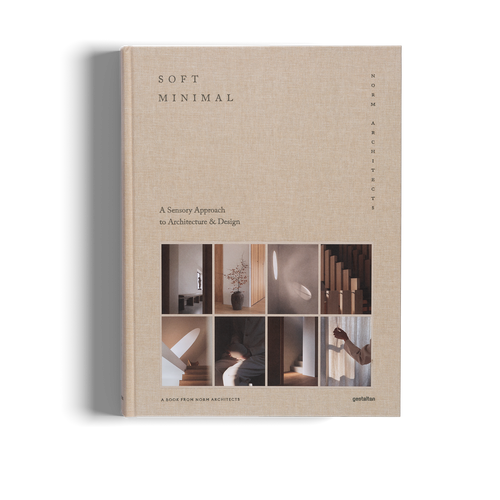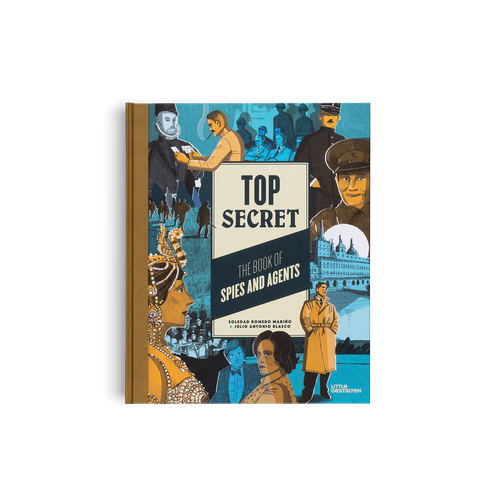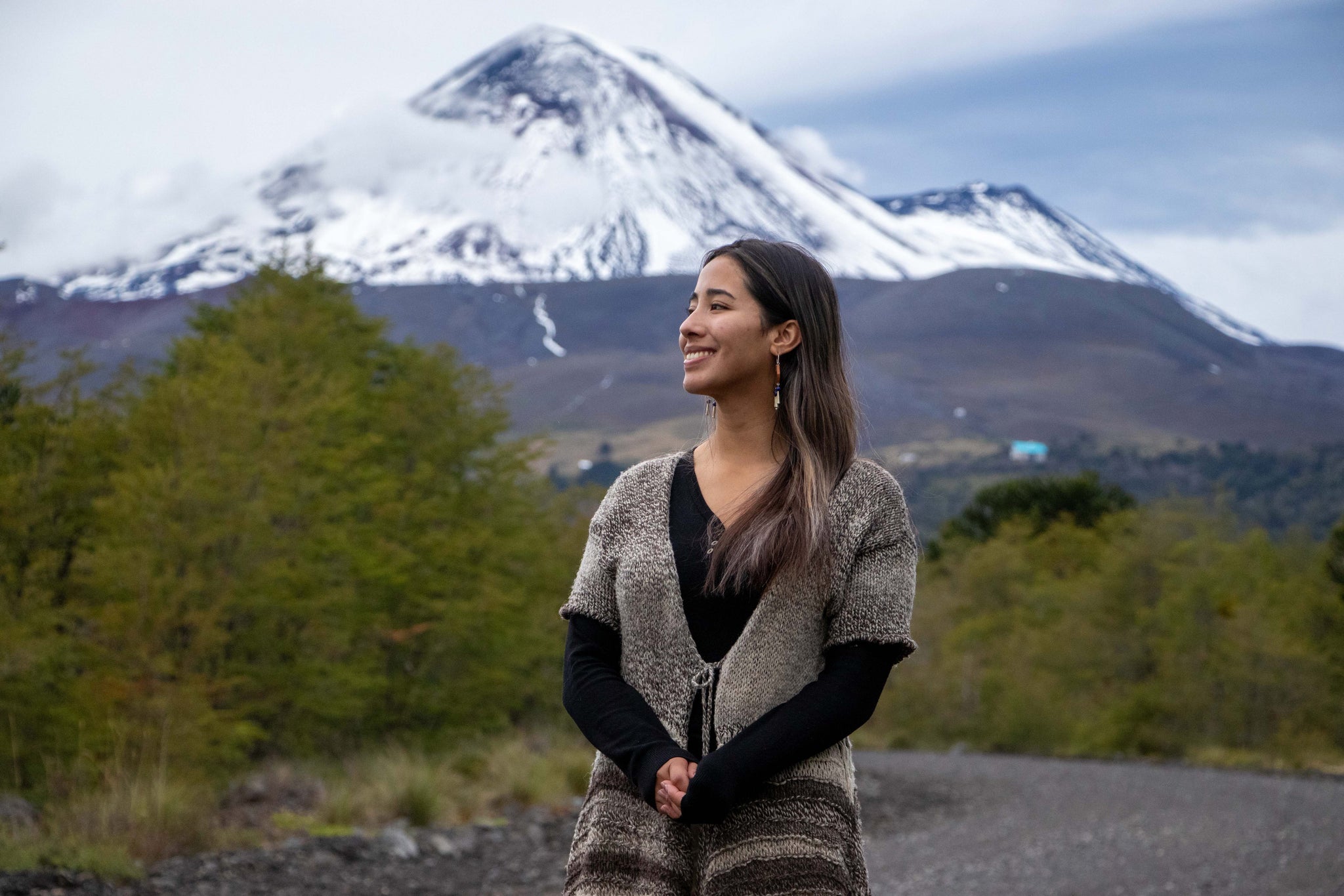
03/2021 design & fashion
Branding isn't just what something looks and feels like, it is how it works and how a vision or message can touch someone emotionally. When executed perfectly, branding is storytelling, and storytelling is creative work. There is an art to standing out in an ocean of competition, especially for new brands hoping to make a name for themselves or undergoing a makeover. Instead of running with the crowd, Brand New Brand explores a new crop of designers who reach for the stars to set themselves apart.
"In the cities in which we live, all of us see hundreds of advertising images every day of our lives. No other kind of image confronts us so frequently. In no other form of society in history has there been such a concentration of images, such a density of visual messages," cultural thinker and art critic John Berger wrote in Ways of Seeing (1972). As an artist himself, he changed our way of seeing art and media, while also arguing for these mediums to great they ought to reflect the society of the time. Since his revolutionary work, the world has undergone a digital and mobile transformation. On any given day, we are inundated with printed and digital forms of communication and advertising. Many of these placements will be easily forgotten, such as tear-off notes for language lessons or conglomerates trying to present a product in a failed 'woke' context. There has never been a more competitive time to be recognized, both in the physical and the digital realm.
The great American graphic designer Paul Rand once said, “Design is the silent ambassador of your brand.” Valuing design and branding is at the core of some of this century's success stories such as Apple and Nike. This universal appeal wasn't some sort of serendipity effect, the likes of Steve Jobs understood that powerful branding and design could help create a culture and community around a vision.

Challenging the Western notions of beauty, Kulfi was a brand launched in 2021 to offer more makeup diversity to people of color. BADAL PATEL utilized a LFT Etica typography, and the custom wordmark incorporates calligraphic scripts, which help the brand maintain its modern sheen. (Visual: Aditi Damle & Aarman Roy, Brand New Brand)
"Developing a brand is more about revelation than positioning, and creating a strategy based on truth will always get better results. The designer’s job is not to make something up; it is to try and unearth what is already there, but which is not already being expressed," writes Astrid Stavro in Brand New Brand. The Italian graphic designer and partner at Pentagram is considered one of the most accomplished artists of this generation.
Branding is a company’s first impression, it expresses a mission and the values it stands for. People buy into branding, and that’s why it matters more than ever. At its best, it gives a company and consumer direction—it creates a space for like-minded persons to converse over a piece of work. Charles Eames suggested that “the role of the designer is that of a very good, thoughtful host, anticipating the needs of his guests.” Today's guests and consumers have never demanded so much from brands and individuals who present themselves as brands. "Across the board, brands now recognize that they need to appeal to consumers’ minds as well as hearts, and increasingly align themselves with social and environmental campaigns. Consumers now demand so much from brands, and more than ever, brands need to think holistically," Stavro explains in the book.
Brand New Brand shows how a good idea that is well crafted can help those new on the scene to make their mark, even on a modest budget. Starvo describes the book as "a testament to the power of imagination and creativity." To give a taster of what to expect, we've rounded up three branding stories to show the diversity of design covered.
Kulfi offers an alternative vision of beauty through its range of products designed especially for people of color. Kulfi took a modern take on vintage pop-culture and traditional script by BADAL PATEL expresses a new vision of beauty. It aims to challenge what it calls the “toxic beauty standards within South Asian culture, defined by Eurocentric and patriarchal ideals.” The challenge was to create a compelling visual identity that resonated with South Asian Gen-Zers and Millennials, but the brand was keen not to resort to the usual South Asian clichés. BADAL PATEL avoided referencing other beauty brands and instead favored a confident yet playful referential approach. This is expressed by a bold use of unexpected color, a striking, custom-drawn logotype that is a modern take on Devanagari script, distinctive illustration, and art-direction that was inspired by the glowing qualities often seen in the vintage portraits of Bollywood actresses.

A Sauvignon Blanc from Germany’s Pfalz wine-growing region, but who are equally known for their statement branding. Rothwild & Design use slogans that echo the owners views and present the rebellious side of the country. (Photo: Rothwild & Design, by Oliver Freudenthaler, Laufen, Brand New Brand)
Emil Bauer & Söhne is a family-run winery, now in its fifth generation, based in Landau-Nußdorf, Germany. It is known for producing excellent wines with unusual labels, and for its unusual advertising and “guerrilla” marketing tactics. It was co-owner Martin Bauer, a marketing student, who gave direction to the packaging design for a new wine range, stating that labels should not only convey the unique character of the wine but offer insight into the thoughts and attitudes of its creators. Rothwild & Design used the label as a canvas on which to share the provocative thoughts of the owners. Different views are coherently pulled together through type choice, simple color, and layouts. The result is idiosyncratic and likely divisive, but bold, uncompromising, and singular in its vision and realization.

Husband and wife studio MENTA PICANTE created the visual identity for EcoGround in Mexico.They created forms that fit together to assemble and make a high structure with different colors to point out the different roles involved in taking a sprout to a grown plant that gives its produce. (Photo: MENTA PICANTE, Brand New Brand)
Balancing ecological concerns with the need for collaboration was the bedrock for MENTA PICANTE’s visual identity for an agricultural investment fund. Investment in sustainable agriculture, improving the lives of farmers in small communities, and engaging stakeholders are essential to a sustainable future. This is the mission of EcoGround, a sustainable agricultural fund in Mexico, and it was central to the development of the fund’s visual identity. This is expressed through the use of colorful, organic shapes, assembled to create stable structures. These, alongside photography, find a balance between conceptual and visual references to the product that comes from the earth. The logotype connects these through robust, chiseled serifs, applied over both illustrations and photography.
Celebrating dynamic design and restarting a brand during times of crisis, find out more about Brand New Brand.
Header image from New Jersey restaurant Korai Kitchen, whose visual identity was created by BADAL PATEL.












